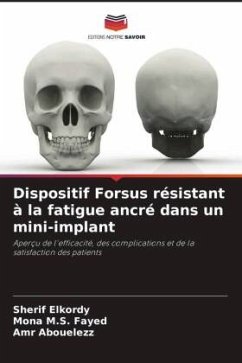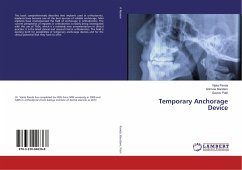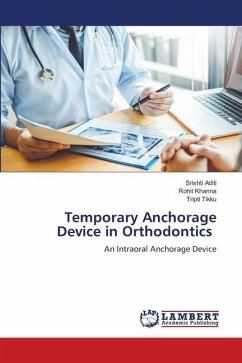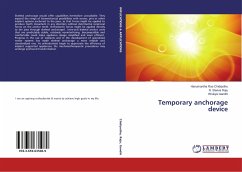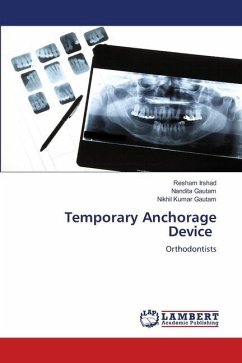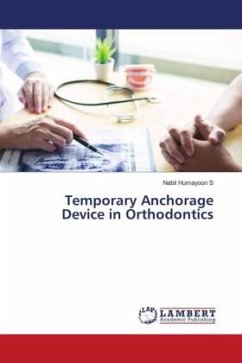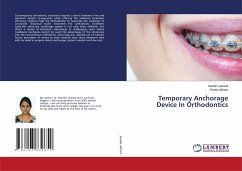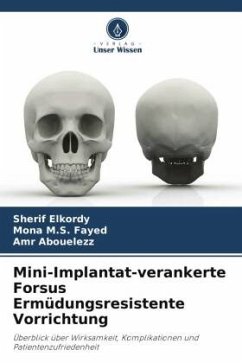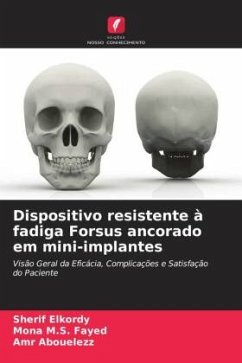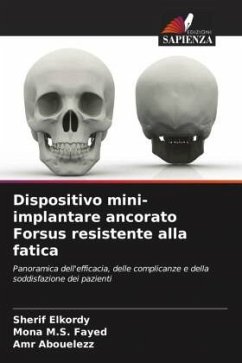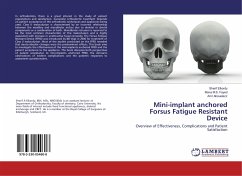
Mini-implant anchored Forsus Fatigue Resistant Device
Overview of Effectiveness, Complications and Patient Satisfaction
Versandkostenfrei!
Versandfertig in 6-10 Tagen
33,99 €
inkl. MwSt.

PAYBACK Punkte
17 °P sammeln!
In orthodontics, there is a great interest in the study of patient expectations and satisfaction. Successful orthodontic treatment depends on patient acceptance of the orthodontic techniques and appliances being used. Class II malocclusion is characterized by an incorrect relationship between the maxillary and mandibular arches due to skeletal or dental components or a combination of both. Mandibular retrusion is reported to be the most common characteristic of this malocclusion and is highly associated with increase in unattractive facial convexity. The Forsus Fatigue Resistant Device (FFRD) ...
In orthodontics, there is a great interest in the study of patient expectations and satisfaction. Successful orthodontic treatment depends on patient acceptance of the orthodontic techniques and appliances being used. Class II malocclusion is characterized by an incorrect relationship between the maxillary and mandibular arches due to skeletal or dental components or a combination of both. Mandibular retrusion is reported to be the most common characteristic of this malocclusion and is highly associated with increase in unattractive facial convexity. The Forsus Fatigue Resistant Device (FFRD) was introduced by Bill Vogt in 2006 for treatment of Class II malocclusion. Most of the studies conducted on the FFRD revealed that dento-alveolar changes were the predominant effects. This book aims to investigate the effectiveness of the mini-implants anchored FFRD and the patient acceptance to the appliance. The book discusses both perspectives of patient acceptance to mini-implants anchored FFRD; the clinician's observations of evident complications and the patients' responses to assessment questionnaires.



